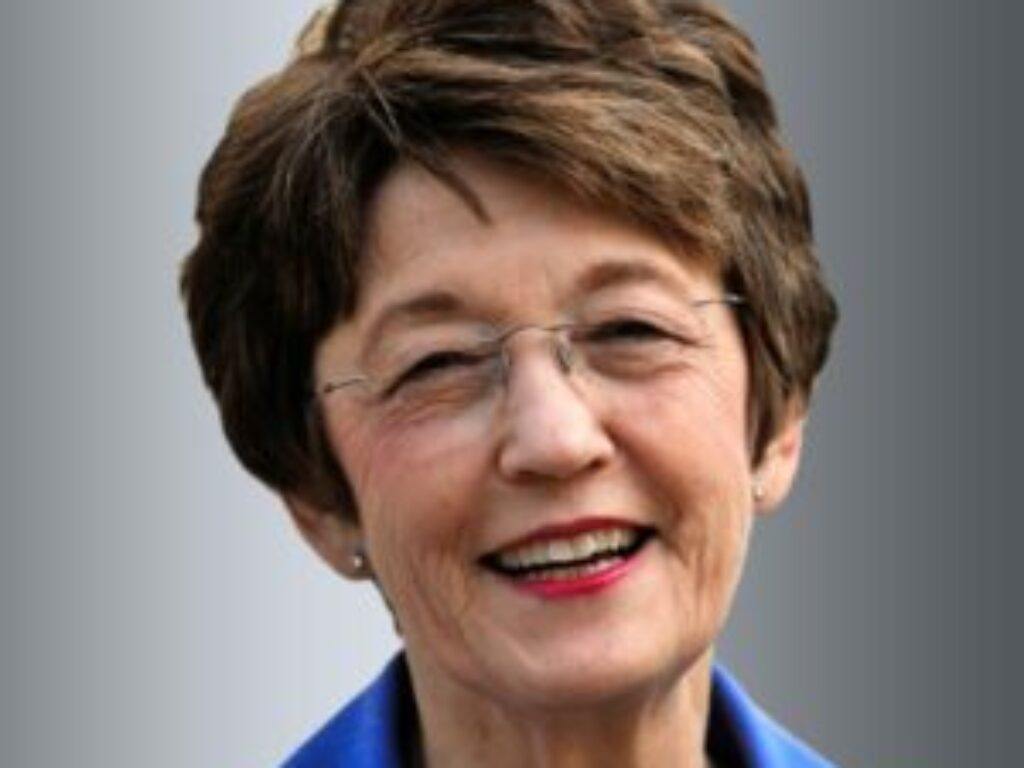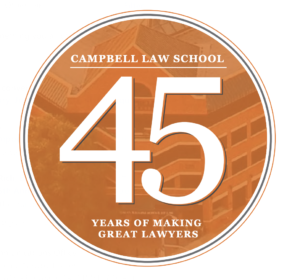Campbell Law 45th Anniversary Alumni Spotlight: Elaine Marshall ’81

Nominee: Elaine Marshall, Class of 1981
The Honorable Elaine Marshall ’81 was the first woman ever elected to a state-wide, executive branch office in North Carolina. She has served as the N.C. Secretary of State since 1997. Marshall has enjoyed a long and distinguished career in state and local politics. From 1993-94 she served as a senator from North Carolina’s 15 District and was the Harnett County Democratic Party Chair and president of the Democratic Women of Harnett County. She was also the National Secretary of the Young Democrats of America in the 1970s. Prior to her political career, Marshall was a partner at Marshall & Marshall and Bain & Marshall in nearby Lillington. She has also served as a teacher, co-owner of a book and gift store, and owner of an interior design firm. Marshall has served on numerous boards and commissions, including as president of the National Electronic Commerce Coordinating Council, member of the Board of Directors of the National Association of Secretaries of State (NASS) and chair of the National E-Notarization Standards Commission, which set the nation-wide standards for notaries public using digital signatures. She currently serves as co-chair of the NASS National Business Identity Theft Task Force and on Campbell University’s Board of Trustees and the Law School’s Board of Visitors. Marshall has been honored with numerous awards and accolades throughout her illustrious career, including the N.C. 4-H Foundation’s Lifetime Achievement Award, the North Carolina Association of Educators Women’s Equality Award and the Triangle Business Journal’s 2006 Lifetime Achievement Award for Women in Business. In October 2014, Marshall was honored with Campbell University’s Distinguished Alumni Award.
Q: You were the first woman ever elected to a statewide, executive branch position in North Carolina, what was it like in your first campaign and what did you learn from it?
A: People were really curious to meet the potential first female statewide executive branch office holder, and as they learned about my background as a former school teacher and a 4-H alum, Home Ec teachers and 4-H and County Extension folks felt a connection and were full of pride to see someone they identified with running for statewide office. People who were engaged in causes I’d championed such as helping survivors of domestic violence were thrilled to see someone who shared their concerns running. When folks started bringing their daughters to meet me, saying “shake hands with this lady, she’s a leader – she’s a role model,” I realized the aspirations and hopes of so many people for women in general and their daughters in particular to some extent rested on my shoulders. Having anyone think of you as a role model can be daunting because we’re all human, but I’ve been humbled to hear from people who say my personal story – from career changes to dealing with divorce and the deaths of spouses – has shown them that the challenges we all endure are part of who we are but we don’t have to let those tough times defeat us or define us.
Q: How did your work experience before law school and then in private practice prepare you for state politics?
A: As a farm girl I had responsibilities from an early age on our family’s farm, from bringing in hay to gathering, washing, candling and grading eggs – I knew my contribution was an essential part of our farm’s economy and our family’s livelihood. Before going to college I was a 4-H camp counselor. My first job after college was as a classroom teacher. I learned how essential it was to understand students’ backgrounds because what might be going on at home with their families affects how they learn in the classroom and how they respond and react. I had a similar eye-opening experience as an attorney practicing family law and seeing how turbulence inside the home can affect people’s behavior and the community. It was my experience practicing family law that led me to lobby for a shelter for women escaping domestic violence. That experience led me to run for NC State Senate, and informed my decision to join Rep. Bertha Holt and other women in the legislature in successfully pushing through – against a surprising level of resistance – the measure to repeal the state’s longstanding marital rape exemption.
Q: Tell us about what your day-to-day is like as Secretary of State.
A: Running the Secretary of State’s Office is a bit like running a large law firm. I do my own independent research on pending issues, national Secretary of State issues, and I spend a lot of time listening. I spend a lot of my time responding to emails, looking at internal issues and case management, considering our legislative agenda, and budget issues. In addition to that I normally do several public appearances a week. Of course, I am not doing any in person events now due to COVID-19 distancing. I have addressed quite a few civic groups holding virtual meetings and participated in online conferences. Like everyone, I am engaged in many internal video and teleconference meetings.
Q: Do you have some skills that have been applicable throughout all of your positions? How did Campbell Law School prepare you?
A: Home Ec and 4-H folks are very resourceful, “can do” people, so I think my early background provided many of the skills that have helped me persevere. My time at Campbell Law School enhanced all of that as well as my public speaking skills. I also joined Toastmasters while in law school to become more comfortable with public speaking. Campbell was instrumental in teaching me how to analyze issues, evaluate legal elements, and organize my thoughts. The trial skills I first learned at Campbell were very important to me in my early days in practice and they continue to be important to me today. I especially want students to remember this point – you never know what areas of the law you might use in the future. In my law school days, I thought I would never need to know much about Administrative Law, but I use Administrative Law every single day now in administering the Secretary of State’s Office, dealing with other parts of government, and the rules and regulations of the Administrative Procedures Act.
Q: Can you tell us one story or memory that still sticks around as having a lasting impact on your career?
A: I became a better and better student every year at Campbell. The first week of class you can put law school students in three categories: some come in very confident – even overly confident – from the undergraduate experience, some come in without that confidence but turn out to be some of the brightest folks in your class, and then some come in with fear and trepidation – I was in that category. Before law school I’d never really challenged myself academically because my confidence level was about a quart low. At Campbell I learned to buckle down and found a level of discipline and confidence I’d never had before. I was admitted to Campbell through the Performance Based Admittance Program, known as PBAP, that allowed students to take two courses during the summer – and all who did well enough were guaranteed a seat. Gaining admission under that program was a big confidence builder for me.
Q: What does Campbell Law School’s motto “leading with purpose” mean to you?
A: The operative word is “purpose” – it all begins there. In order to be a true leader you have to evaluate “purpose” first. Each of us has to figure out why God put us here on this Earth and what our purpose is, and identify the values we hold to support that purpose. Each and every action we take after that should align with our values to fulfill our purpose. If our actions do not align with our values, then we are only actors in a performance rather than living our life as leaders with purpose.
Want to nominate a Campbell Law Alumna/Alumnus to be featured in a 45th anniversary spotlight?
If you would like to nominate a fellow alumnus/na who is living the university’s motto “leading with purpose,” please contact Lisa Snedeker at lsnedeker@campbell.edu for more information.

